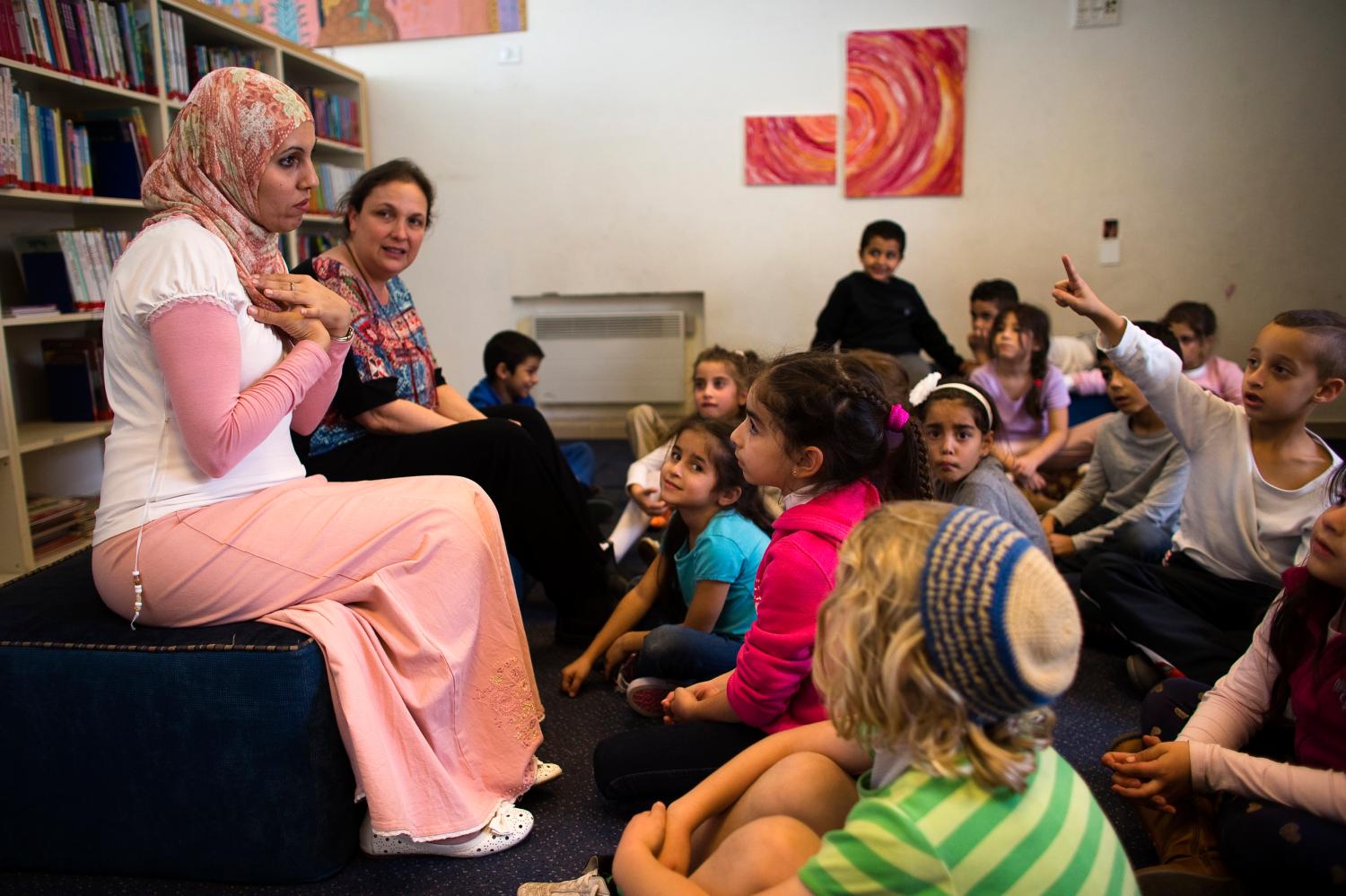This three-part paper series is part of the Center for Middle East Policy’s ongoing research on “Imagining Israel’s Future,” which is designed to help Washington audiences engage with voices from today’s dynamic Israeli society. The papers were written in conjunction with a workshop on the future of Israel’s society, convened at Brookings in December 2016.
 In their paper “Tribes, identity, and individual freedom in Israel,” Natan Sachs and Brian Reeves explore Israel’s multicultural legal approach, which preserves the legal rights and power of religious groups within an otherwise liberal, secular state. They argue the lack of separation between religion and state and excessive group autonomy has negatively affected individual rights and exacerbated communal divisions.
In their paper “Tribes, identity, and individual freedom in Israel,” Natan Sachs and Brian Reeves explore Israel’s multicultural legal approach, which preserves the legal rights and power of religious groups within an otherwise liberal, secular state. They argue the lack of separation between religion and state and excessive group autonomy has negatively affected individual rights and exacerbated communal divisions.
Reeves and Sachs begin by examining the tension between individual autonomy and group identity. The authors contend that liberalism provides only a broad, rationally derived framework premised on individual freedom, but the specific plan for society is determined by the preferred choices of its constituents. They argue that while this struggle between liberalism and multiculturalism is present throughout the West, including the United States, Israel has yet to develop a settled political basis to resolve these questions.
Next, Reeves and Sachs touch on President Rivlin’s “four tribes” of Israel—Ultra-Orthodox Jews (Haredim), Religious Jews (dati’im), Secular Jews (hilonim), and Arab citizens—and their correspondence with the four official educational streams. The authors demonstrate how the communal segregation of education is not simply reflective of the four tribes, but is actually producing them. The paper argues that the old debate in Israel over an educational common core should continue, but the concerns of the marginalized, Haredi and Arabs, cannot be ignored by the traditional elite of secular and national religious Jews.
Sachs and Reeves later address the risks of institutionalization of the tribal amalgam when using it as a political framework. They emphasize the need to privilege overarching interests of individuals from all sectors of society, rather than further entrench parochialism. The politicization of communalism can benefit minority groups, as the Joint List provided unprecedented political clout for Arab citizens, but inevitably at the cost of individual freedom. The second risk is that it could transform secularism into yet another parochial interest. Instead, secularism should be the separation of organized religion and political power, rather than only explicitly nonreligious or anti-religious. Indeed, the authors argue the separation of religion and state protects the divergent religious views of particular groups.
Some of Israeli society’s most pressing challenges—the social divides over marriage, national service, women’s rights, and intercommunal relations—have a common source: a lack of emphasis on individual autonomy. Sachs and Reeves recommend that Israel strengthen individual liberty by working to separate religion and state to offset the current system’s overemphasis on groups, which has resulted in communal solidarity over national interests.
The Brookings Institution is committed to quality, independence, and impact.
We are supported by a diverse array of funders. In line with our values and policies, each Brookings publication represents the sole views of its author(s).







